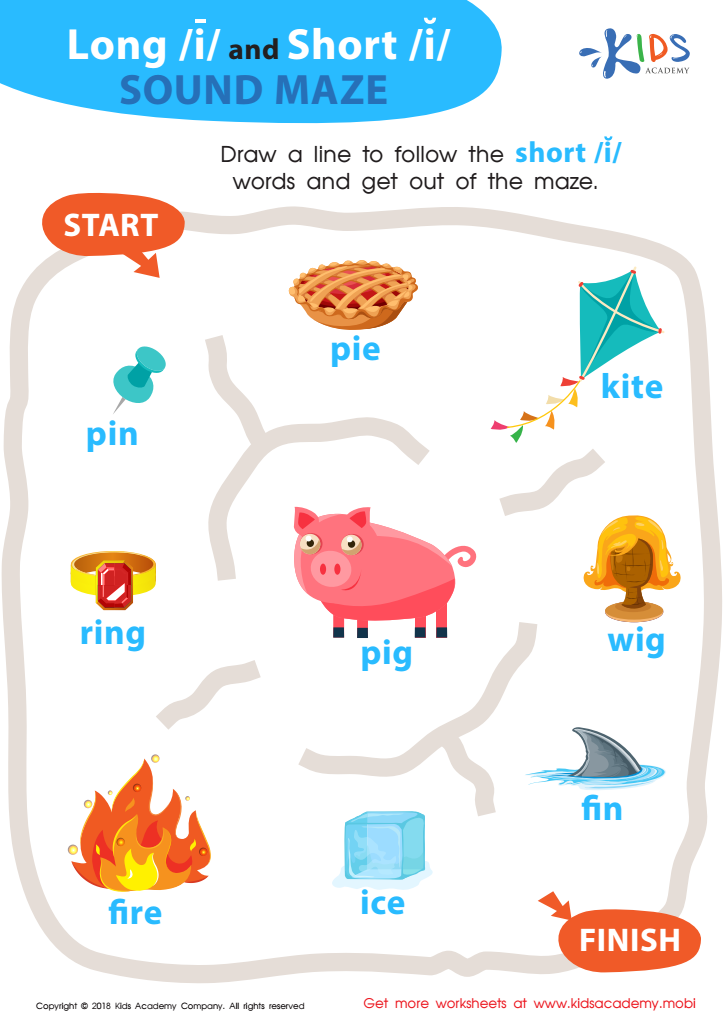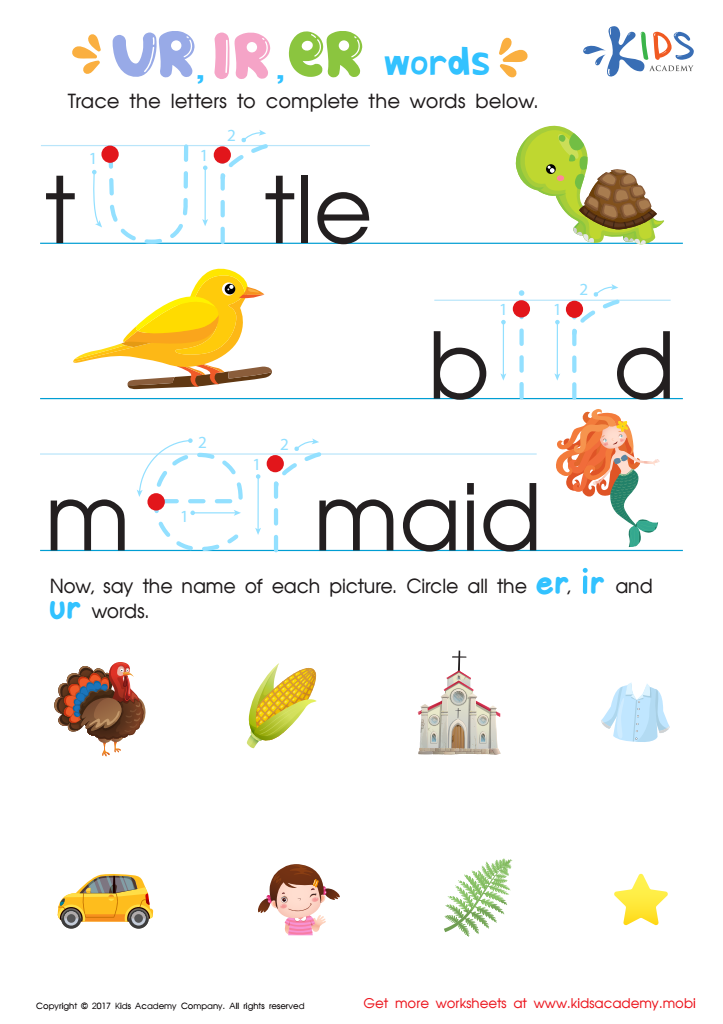Phonics recognition Normal Alphabet Worksheets for Ages 8-9
4 filtered results
-
From - To
Engage your 8-9 year-olds with our Phonics Recognition Normal Alphabet Worksheets, expertly designed to enhance reading skills! These engaging printable worksheets feature a variety of activities that reinforce phonics recognition through fun exercises tailored for early learners. Each worksheet focuses on sound-letter associations, helping children develop essential phonetic skills needed for fluent reading. With colorful illustrations and interactive tasks, your child will enjoy practicing their reading while building confidence. Perfect for home study or classroom use, our worksheets align with educational standards to support your child’s literacy journey effectively. Unlock their potential today with our captivating phonics resources!


Phonics and Word Recognition: Assessment 1 Worksheet


Reading: Long I and Short I Sound Maze Worksheet


Phonics and Word Recognition: Assessment 2 Worksheet


IR UR ER Words Worksheet
Phonics recognition is crucial for children aged 8-9 as it lays the foundation for proficient reading and writing skills. At this stage, children transition from learning to read to reading to learn, making phonics recognition an essential skill. It enables them to decode unfamiliar words, making literature and educational material more accessible, thus fostering a love for reading.
Parents and teachers should care about phonics because it enhances vocabulary acquisition and spelling abilities. With a solid understanding of phonics, children can understand the relationship between letters and sounds, which is vital for both reading comprehension and effective communication. Additionally, strong phonics skills help prevent potential reading difficulties, enabling students to keep up with their peers academically.
Moreover, early mastery of phonics can boost a child’s confidence. Children who read fluently are more likely to participate actively in classroom discussions, enriching their learning experience and motivation. This skill also serves a long-term purpose, as strong literacy skills are fundamental for future academic success, including standardized testing and higher-level reading in advanced subjects. Involving parents and educators in supporting phonics recognition ensures a collaborative effort in nurturing confident, capable readers.

 Assign to My Students
Assign to My Students



















